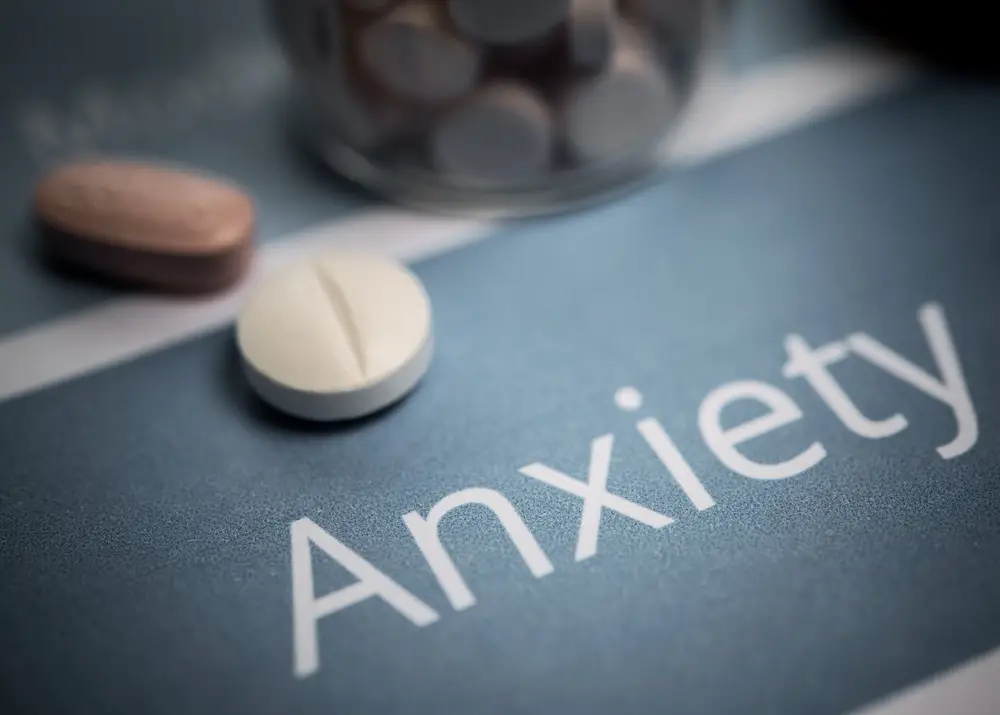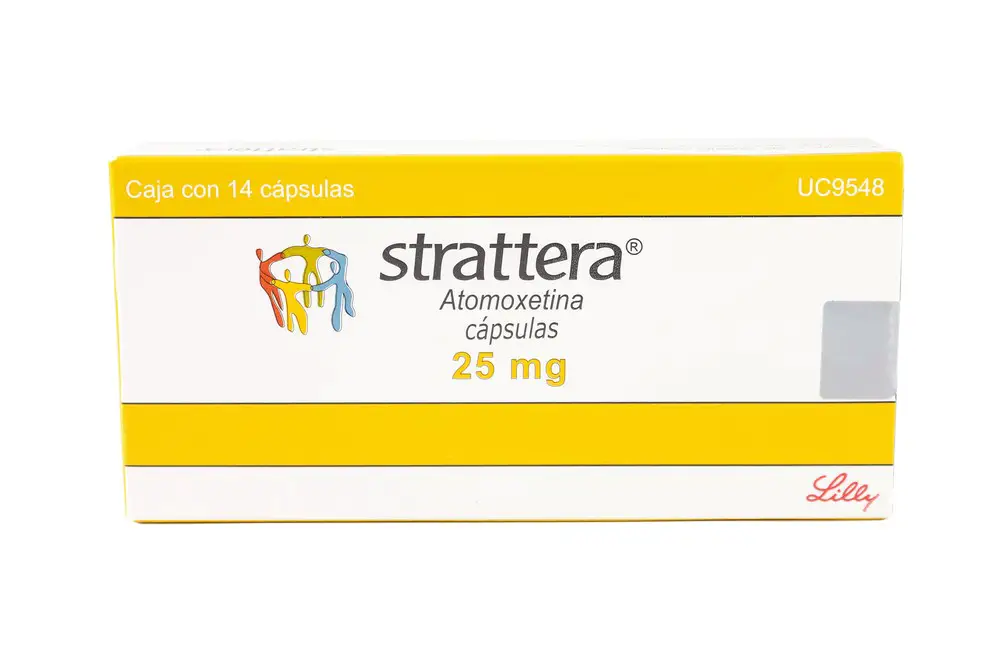As a BetterHelp affiliate, we receive compensation from BetterHelp if you purchase products or services through the links provided
Strattera, a non-stimulant medication, is primarily used to treat attention deficit hyperactivity disorder (ADHD). It affects the brain neurotransmitter norepinephrine, which transmits impulses to nerves. While Strattera is not specifically designed for anxiety treatment, it has shown some effectiveness in managing anxiety symptoms for certain individuals.
As an immediate-release drug, Strattera belongs to a class of medications called selective norepinephrine reuptake inhibitors (SNRIs). It plays a role in improving focus and decreasing impulsive behavior, which can benefit those struggling with anxiety. The medication can be taken alone or in combination with other treatments depending on the specific needs of the individual.
It is essential to note that Strattera is not a commonly prescribed medication for anxiety disorders, as it was not developed to target depression or anxiety itself. Nevertheless, some individuals with anxiety may experience positive effects when using Strattera, largely due to its influence on improving focus and reducing impulsivity. As with any medication, it is crucial to consult a healthcare professional before considering Strattera as a treatment option for anxiety.
Strattera and Anxiety
Strattera (atomoxetine) is a medication primarily known for treating attention deficit hyperactivity disorder (ADHD). However, it has also been explored as a treatment option for anxiety disorders. In this section, we will discuss the relationship between anxiety and ADHD and the use of Strattera for anxiety treatment.

Anxiety and ADHD
Anxiety disorders and ADHD often coexist, with studies showing a high prevalence of anxiety symptoms among individuals diagnosed with ADHD. This comorbidity can make the management of both conditions more challenging. The medications typically used to treat ADHD, such as stimulants, may sometimes exacerbate anxiety symptoms. Therefore, finding alternative treatment options that can address both conditions is essential.
Strattera for Anxiety Treatment
Strattera, a non-stimulant drug, has gained interest as a potential treatment option for ADHD and anxiety. It affects a vital brain neurotransmitter called norepinephrine, which transmits nerve impulses. Unlike stimulant medications, Strattera can be used alone or with other medications for anxiety treatment without the risk of worsening anxiety symptoms (source).
Studies have shown that Strattera, when used as an adjunct to selective serotonin reuptake inhibitors (SSRIs) or serotonin-norepinephrine reuptake inhibitors (SNRIs), can lead to improvements in partially responsive anxiety symptoms among patients with comorbid ADHD and anxiety disorders (source).
It is crucial to note that every individual’s response to medication may vary. While Strattera may benefit some patients with ADHD and anxiety, it might not be the best option for others. A healthcare professional should determine Strattera’s dosage and treatment plan based on the patient’s specific needs and medical history (source).
How Strattera Works
Strattera, also known as Atomoxetine, is a non-stimulant medication that primarily works by affecting the brain’s neurotransmitter, norepinephrine. This vital neurotransmitter is crucial in transmitting impulses to nerves and regulating attention, alertness, and impulse control. Unlike other medications typically used for ADHD, Strattera is not classified as a stimulant, making it a suitable option for individuals who may not respond well to stimulant medications.
The primary mechanism by which Strattera helps with anxiety, and ADHD lies in its ability to act as a norepinephrine reuptake inhibitor (NRI). By inhibiting the reuptake of norepinephrine, it increases the availability of this neurotransmitter in the brain, leading to improved focus and reduced hyperactivity and impulsivity. Furthermore, Strattera’s impact on norepinephrine can relieve individuals experiencing anxiety, as an imbalance in this neurotransmitter can contribute to anxiety symptoms.
It is important to note that Strattera’s effects might vary from individual to individual. It may be used with other medications to optimize anxiety and ADHD symptom control. Despite its unique mode of action, it effectively treats ADHD in children and adults, providing a valuable alternative for those requiring non-stimulant medication.
Dosage and Administration
Regarding Strattera, the dosages vary depending on the individual’s age group and specific needs. The following sub-sections outline the dosage guidelines for children, adolescents, and adults.
Children and Adolescents
For children and adolescents weighing up to 70 kg, the initial dosage of Strattera is typically based on their body weight. A common starting dose is 0.5 mg/kg daily, which can be adjusted according to the patient’s response and tolerability. Sometimes, the doctor may increase the dosage after 2 to 4 weeks to a maximum dose of 1.4 mg/kg or 100 mg daily, whichever is lower (source: Healthline).
Individuals weighing over 70 kg and adolescents transitioning into adulthood should follow adult dosage guidelines.
Adults
Adults and adolescents weighing over 70 kg should begin with a total daily dose of 40 mg. After a minimum of 3 days, the dose can be increased to a target total daily dose of approximately 80 mg. This dosage can be administered as a single daily dose in the morning or evenly divided in the morning and late afternoon/early evening (Drugs.com).
Patients should always follow the dosages prescribed on the prescription label and consult their healthcare provider if they have any questions or concerns regarding their Strattera medication.

Side Effects

Common Side Effects
Strattera, a medication used to treat anxiety, is associated with several common side effects. Patients taking Strattera may experience nausea, dry mouth, constipation, and loss of appetite(source). Common side effects include trouble sleeping, irritability, dizziness, and fatigue(source). Other symptoms that may occur are headache, nervousness, and decreased appetite(source).
Strattera can also lead to some sexual side effects. Patients may experience decreased libido or other sexual difficulties(source).
Serious Side Effects
Although rare, Strattera has been linked to some serious side effects. These side effects require immediate medical attention and include liver damage, heart attack, and thoughts of suicide(source). It is crucial to contact a healthcare professional if you experience any symptoms that may indicate a serious side effect.
Warnings and Precautions
Suicidal Thoughts and Behaviors
STRATTERA (atomoxetine) has been associated with an increased risk of suicidal ideation in short-term studies in children and adolescents with Attention-Deficit/Hyperactivity Disorder (ADHD). It is important to balance this risk with the clinical need for the medication when considering its use in children and adolescents (Healthgrades).
Heart Disease and Stroke
Individuals with a history of heart disease, stroke, or high blood pressure should be cautious when taking Strattera as it may increase heart rate and blood pressure. Consult with a healthcare professional before starting the medication to ensure it is safe and appropriate for your circumstances.
Liver Disease
There have been cases of liver toxicity reported in association with Strattera, so those with a history of liver disease should use this medication cautiously. See medical attention immediately if you experience signs of liver problems, such as jaundice or dark urine.
Allergic Reactions
Allergic reactions, such as angioedema, can occur in some individuals taking Strattera. If you experience difficulty breathing, facial or limb swelling, or hives, stop taking the medication and seek emergency medical attention.
Glaucoma and Pheochromocytoma
Patients with narrow-angle glaucoma or pheochromocytoma should not take Strattera, as it may worsen these conditions. Before starting this medication, inform your healthcare provider of your medical history to ensure it is appropriate for your condition.
Pregnancy and Breastfeeding
Strattera may have potential risks to a developing fetus or a nursing infant. Consult your healthcare provider if you are planning to conceive, are currently pregnant, or are breastfeeding to discuss this medication’s potential risks and benefits.
Interactions
When using Strattera for anxiety, it’s essential to be aware of potential interactions with other medicines, dietary supplements, and substances. Combining Strattera with certain medications can lead to increased side effects, decreased effectiveness, or altered drug performance.
Some common medication interactions with Strattera include antidepressants like fluoxetine, paroxetine, and quinidine. CYP2D6 inhibitors, such as paroxetine, can also interact with Strattera, affecting how the medication works (“Strattera: 7 things you should know”, Drugs.com).
It is important to note that mixing Strattera with stimulant medications or other substances used to treat ADHD can lead to unintended consequences. Please consult your healthcare provider before combining treatment options.
In addition, Strattera may interact with certain dietary supplements, so it’s essential to inform your healthcare provider about any supplements you take. These interactions can cause adverse effects or reduce the medication’s efficacy.
Some medications that should be avoided while taking Strattera include monoamine oxidase inhibitors (MAOIs) such as Marplan, Nardil, and Parnate. Mixing Strattera with these medications can lead to severe and potentially life-threatening drug interactions. If you have been taking an MAOI, consult your healthcare provider about the appropriate waiting period before starting Strattera.
Comparing Strattera to Other Treatments
Strattera vs. Stimulant Medications
While Strattera and stimulant medications like Adderall are prescribed to treat attention deficit/hyperactivity disorder (ADHD), they work differently. Stimulant medications such as Adderall improve attention span, hyperactivity, and impulse control by increasing the levels of dopamine and norepinephrine in the brain. Strattera, conversely, is a non-stimulant medication that works primarily by targeting norepinephrine.
The side effects and drug interactions of Strattera and stimulant medications can also differ. Strattera may cause nausea and stomach upset and can interact with medications such as albuterol, bupropion, and anti-anxiety medications like lorazepam. Stimulant medications have the potential to cause side effects such as increased heart rate, elevated blood pressure, and decreased appetite.
Strattera vs. Antidepressants
Antidepressants, such as selective serotonin reuptake inhibitors (SSRIs) like Prozac and serotonin-norepinephrine reuptake inhibitors (SNRIs), are commonly prescribed for mood disorders like depression. Strattera is not an antidepressant, but it can potentially help improve mood in some individuals with ADHD due to its effect on norepinephrine (Ezcare Clinic).
However, Strattera and antidepressants have different mechanisms of action. While Strattera primarily targets norepinephrine, SSRIs work by increasing serotonin levels in the brain, and SNRIs affect both serotonin and norepinephrine. It is essential to note that Strattera might require dosage adjustments if prescribed alongside medications classified as CYP2D6 inhibitors, such as paroxetine, fluoxetine, and quinidine (Drugs.com).
Strattera’s efficacy in addressing symptoms of ADHD has been rated as average compared to other treatments, with some individuals reporting positive effects and others experiencing negative effects (Drugs.com). When considering the most appropriate treatment for ADHD or anxiety, it is crucial to consult with a healthcare professional to determine the best medication based on individual needs and potential drug interactions.



